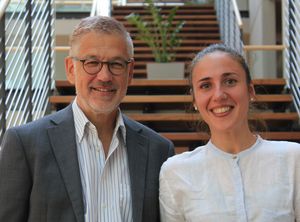The adopted Directive aims to adapt copyright law to the digital age and the digital internal market in order to keep pace with technological progress, changing user behavior and new business models.
"In some respects, the new directive is a step in the right direction - but it is far from achieving its original objectives. The extent to which creators will now be better off remains to be seen; in any case, they might benefit little or not at all from the two most controversial provisions. As for the citizens, we will now see how the platforms behave. What is certain is that copyright law will become even more restrictive - and even less comprehensible", Prof. Dr. Reto M. Hilty, managing Director of the Max Planck Institute for Innovation and Competition says.
"This directive disregards the original objectives of the reform and does not reflect a medium- and long-term vision of a modern European copyright law. It is regrettable that in the face of such a wide scientific consensus on the critical aspects of this Directive we have come to this result. Looking at the future, it is now up to the Member States and the European Court of Justice to implement and interpret the directive, respectively with a suitable balance of the interests at stake", Senior Research Fellow Valentina Moscon comments.
Valentina Moscon, Senior Research Fellow at the Max Planck Institute for Innovation and Competition in Munich, and Director Reto M. Hilty lead the project group for the modernization of copyright law. The legal experts have already analyzed the effects of the reform at an early stage of the legislative process in a statement and compared them with the current draft resolution.
Two articles of the new directive are particularly criticized: Article 11, which in its current version has become Article 15, provides for a neighboring right for press publishers throughout Europe. News services will pay press publishers for short text excerpts from press articles - so-called snippets - on their pages. Article 13 - now Article 17 - is also controversial: it provides for liability of commercial platforms such as Youtube and others for unauthorized uploading of copyrighted works by its users.
News updated 04/15/2019
More information:

